Start your weight loss journey with lentils, a nutritional gem for reducing weight. High in protein and fiber, they promote fullness and curb unhealthy snacking. Considering “are lentils good for weight loss?” – their low-calorie, nutrient-rich nature is ideal for calorie control without losing essential nutrients.
Lentils’ versatility in recipes makes them easy to include in your diet, aiding significantly in achieving your weight loss goals while enriching your meals with flavor.
Related articles
- Is Brown Rice Good For Weight Loss? How To Achieve?.
- Are Tomatoes Good For Weight Loss?.
- Are Apples Good For Weight Loss? How To Eat Apples To Lose Weight?.
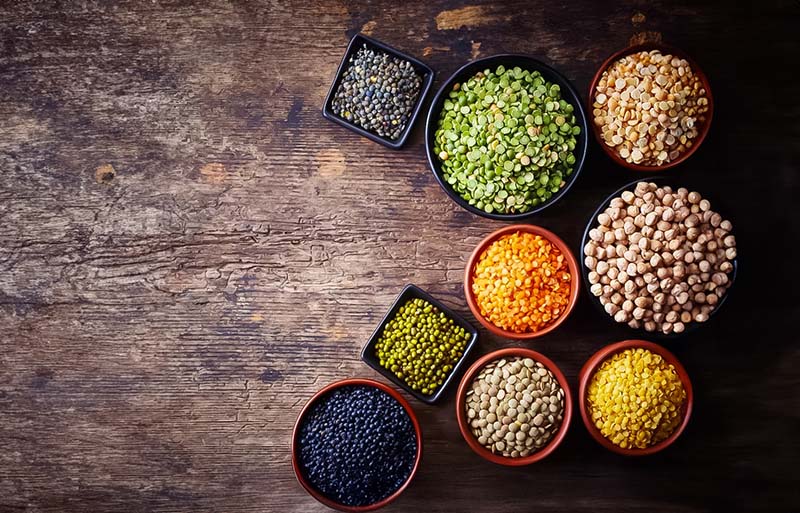
Are Lentils Good for Weight Loss?
Absolutely! Lentils are a great choice for weight loss because they don’t have many calories but are full of nutrients. They’re loaded with fiber and protein, which help you feel full and satisfied, so you’re less likely to snack between meals. This can help you eat fewer calories overall, which is key for losing weight.
Here’s why lentils are great for anyone trying to lose weight:
- Low in Calories and Fat: Lentils are ideal for weight loss diets as they have few calories and almost no fat.
- Full of Antioxidants: They have lots of antioxidants, which protect your cells and might help prevent some long-term illnesses.
- Protein for Muscles: Protein in lentils helps build and maintain muscle, which is important for burning calories and losing weight.
- Fiber for Fullness: The fiber in lentils keeps you feeling full after eating, so you’re less likely to eat too much.
- Essential Nutrients: Lentils also have important vitamins and minerals like folate, potassium, and magnesium, all good for your overall health and helpful in maintaining a healthy weight.
Note: Try adding lentils to different meals like soups, salads, or even as a meat substitute in recipes. This adds variety to your diet and keeps things interesting.
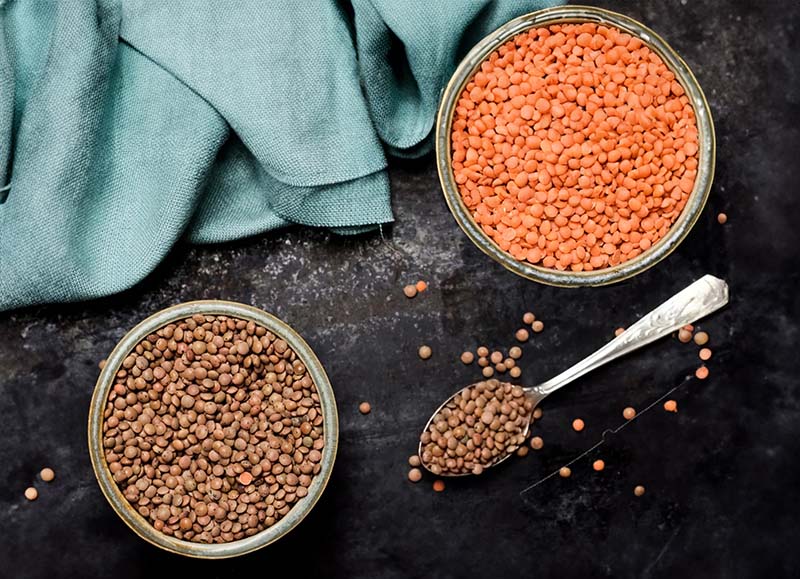
Nutritional Benefits of Lentils
Lentils are part of the bean family and are really good for you. They’re full of B vitamins, folate (which is great during pregnancy), iron, and potassium. Plus, they have a lot of protein and fiber. They’re quick and easy to cook, and because they’re affordable, they’re a great choice for people all over the world who need good-quality protein.
A big study in 2019, reported by the Journal of the American Heart Association, showed that people who eat more healthy plant foods like lentils have a lower risk of heart disease and other health problems. Plant foods are full of fiber, vitamins, and minerals. They might also have antioxidants, which fight against harmful substances in your body that can cause swelling and even cancer.
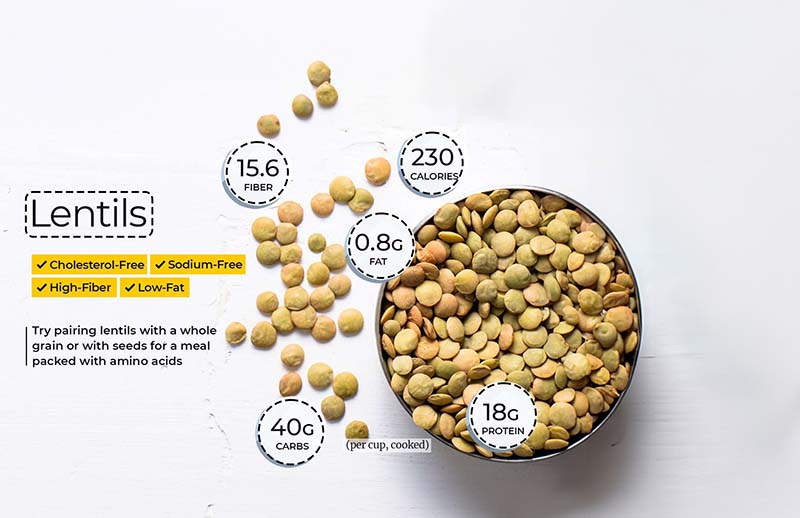
Which Lentils are Good for Weight Loss?
Here are five types of lentils and their recipes that are great for weight loss:
- Urad Dal (Black Lentil): Urad dal is a powerhouse of antioxidants, protein, and vitamin B3, and it’s low in fat and calories. This boosts digestion, strengthens bones, and increases energy. Commonly used in dishes like dal makhani, dosa, and vada, it’s best for weight loss in a simple khichdi. Combine urad dal with rice and spices for a tasty, weight-friendly meal.
- Chana Dal (Bengal Gram Split): Famous in India, chana dal is used in many dishes due to its delicious taste. Dal tadka, made with onions, tomatoes, ginger, garlic, and spices, is a common preparation. For weight loss, try chana dal with spinach (palak). This combination is nutritious and supports your diet goals.
- Toor Dal (Pigeon Pea Lentil): This lentil is often eaten with rice or in khichdi. Rich in folic acid, it’s a fantastic protein source for people with diabetes or heart issues. Besides being a staple dal, it’s also used in rasam and dosa.
- Moong Dal (Green Gram): Moong dal is highly recommended for weight loss diets. Loaded with protein and gentle on the digestive system, it also boosts blood circulation and skin health. A simple moong dal khichdi, which can be made with just rice, dal, and basic spices, is ideal for weight loss. You can also add vegetables to enhance its nutritional value.
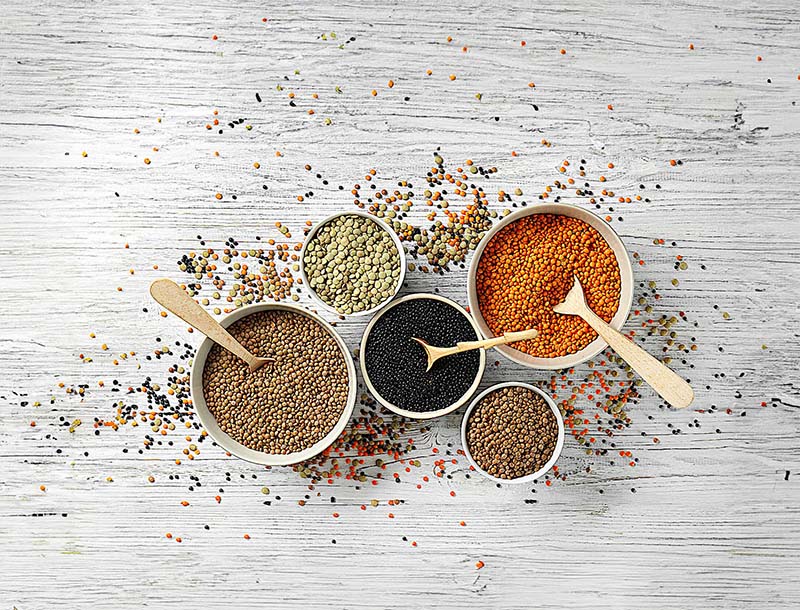
Others Health Benefits of Lentils
Lentils are not only beneficial for weight management but also offer a variety of other health advantages. They’re high in protein, which is crucial for building and maintaining muscles, bones, and skin. Protein also aids in appetite control and supports weight loss by keeping you feeling full longer. Additionally, lentils provide several other health benefits:
Plant-Based Protein Powerhouse
With 18g of protein per cup when cooked, lentils are an exceptional source of plant-based protein, ideal for vegans and vegetarians.
Abundant in Dietary Fiber
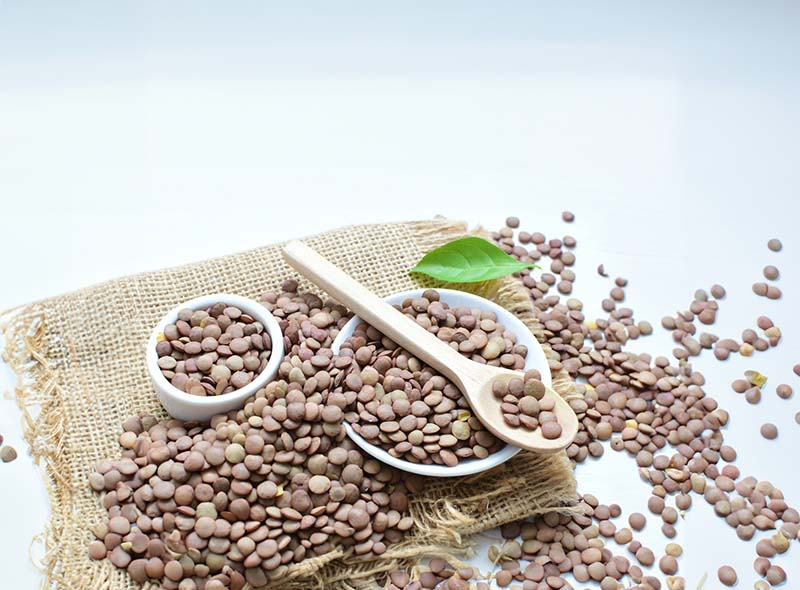
Lentils are also rich in dietary fiber, essential for healthy digestion and weight management. A single cooked cup offers 16g of fiber, covering a significant portion of your daily recommended intake.
Blood Sugar Stabilization Properties
The combination of fiber and protein in lentils helps slow down the absorption of sugar into your bloodstream, preventing spikes in blood sugar levels after meals.
Iron-Boosting Benefits
As a great source of iron, lentils are particularly valuable for those on a plant-based diet. Iron is vital for transporting oxygen and nutrients throughout the body, enhancing energy levels.
Heart Health Improvement
Lentils are loaded with heart-friendly nutrients like fiber, potassium, and folic acid. Increased fiber intake can lower cholesterol, potassium aids in maintaining a regular heart rhythm, and folic acid is important for red blood cell production, all contributing to better cardiovascular health.
Cholesterol-Lowering Effects
Research indicates that daily consumption of lentils or other legumes can lower LDL (the “bad” cholesterol) thanks to their high fiber content.
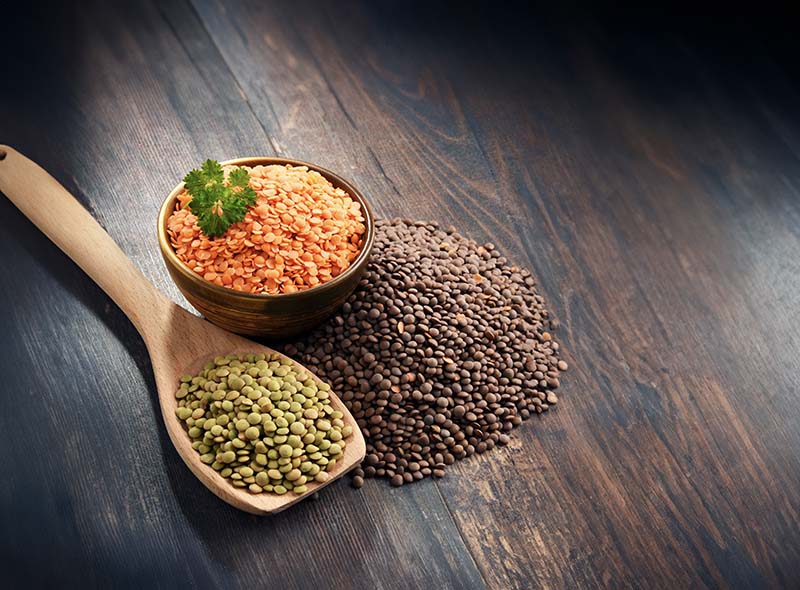
Low-Sodium Nutritional Option
If you’re mindful about sodium intake, lentils are a great choice. They are naturally free of sodium, allowing you to control the amount of salt you add to your diet.
Are Lentils Safe for Everyone?
Lentils are usually fine for most people to eat regularly. But they do have something called anti-nutrients, which can make it harder for our bodies to take in important minerals like iron and zinc. Soaking and cooking the lentils can help lessen this problem.
Also, some people might be allergic to lentils, especially if they’re allergic to other beans, like chickpeas. In fact, in some places like Spain, being allergic to lentils is more common than being allergic to peanuts.
If you think you might be allergic to lentils or have trouble with certain foods, it’s a good idea to talk to a doctor or a healthcare professional. They can help you figure out if you have an allergy and give advice on eating lentils safely.
Note: If you’re new to eating lentils, try them in small amounts first to see how your body reacts, especially if you’ve had issues with beans before. Also, different ways of cooking them, like using a pressure cooker or fermenting, can make lentils easier on your stomach and reduce those anti-nutrients.
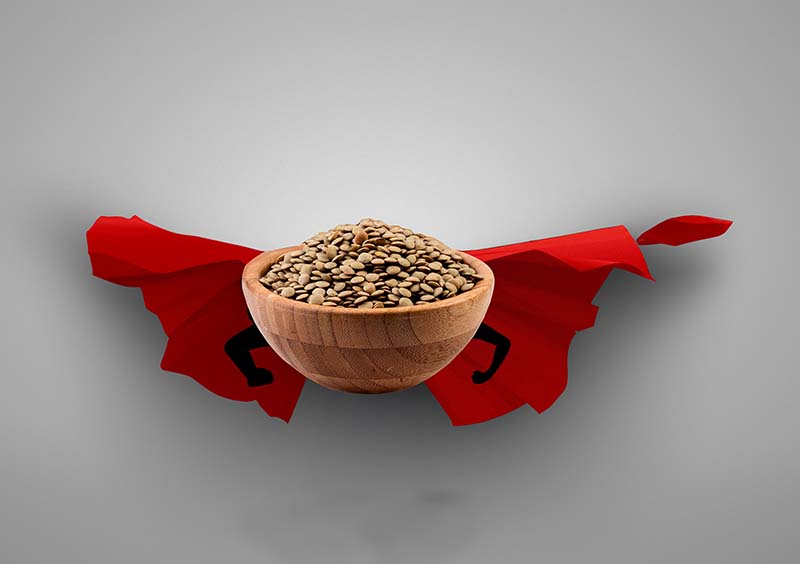
Conclusion
Exploring the question, “Are Lentils Good for Weight Loss?” has shown us the incredible benefits of this versatile legume. With their high protein and fiber content, lentils are undoubtedly a fantastic choice for those looking to manage their weight effectively. Beyond weight loss, they offer numerous health benefits, including stabilizing blood sugar levels and improving heart health. Remember, it’s essential to consider how best to prepare lentils and to be aware of potential allergies.
Have lentils played a part in your health journey? We would be thrilled to hear about your experiences! Share your stories with us and let’s build a community of health and wellness inspiration. And for a deeper dive into healthy living, don’t forget to browse through more informative and engaging blogs at HealthConnect. Let’s continue our journey towards a healthier life, one meal at a time!

Dr. Joyce Slater: Your Guide to Informed Health Choices
Dr. Joyce Slater shines as a distinguished expert in the field of nutrition and public health. Contributing her vast expertise to HealthConnectbc, she embodies a deep-seated passion for enhancing public well-being. As a respected figure in her field. Dr. Slater’s academic journey and professional achievements are nothing short of inspirational.
Holding a significant position as a researcher and educator, Dr. Slater has delved deeply into the intricacies of food literacy and nutritional science. Her work, prominently featured in numerous esteemed scientific publications, underscores her dedication to expanding our understanding of food’s role in health and society.
At the heart of Dr. Slater’s professional ethos is a profound desire to positively impact individual lives through education and research. She often says, “Empowering people with the knowledge to make healthier choices is the most rewarding aspect of my work.” This principle is the cornerstone of her involvement with HealthConnectbc, where she strives to provide reliable and practical health advice.
Dr. Slater’s contributions to HealthConnectbc are multifaceted: academically, she offers insights into the complex world of nutrition and health, enhancing both public understanding and professional practices. Additionally, she is instrumental in guiding and inspiring the next generation of health professionals, thus fostering future excellence in the field.
Juggling rigorous research with her educational duties, Dr. Slater demonstrates an unwavering commitment to her profession. Her approachable nature and genuine concern transcend the confines of academia, touching the lives of everyone she interacts with. Dr. Slater looks forward to continuing her journey of discovery and education, dedicated to the ongoing improvement of public health and nutrition.
At HealthConnectbc, Dr. J. Slater is not just a contributor; she is a guiding light, dedicated to enlightening and motivating individuals towards a healthier and more informed lifestyle.
PUBLISHED ARTICLES
- Food literacy competencies: A conceptual framework for youth transitioning to adulthood (2018)
- Self-perceived eating habits and food skills of Canadians (2016)
- Challenges to acquiring and utilizing food literacy: Perceptions of young Canadian adults (2016)
- Socio-demographic and geographic analysis of overweight and obesity in Canadian adults (2009)
- Sustainable well-being: Concepts, issues, and educational practices (2014)

